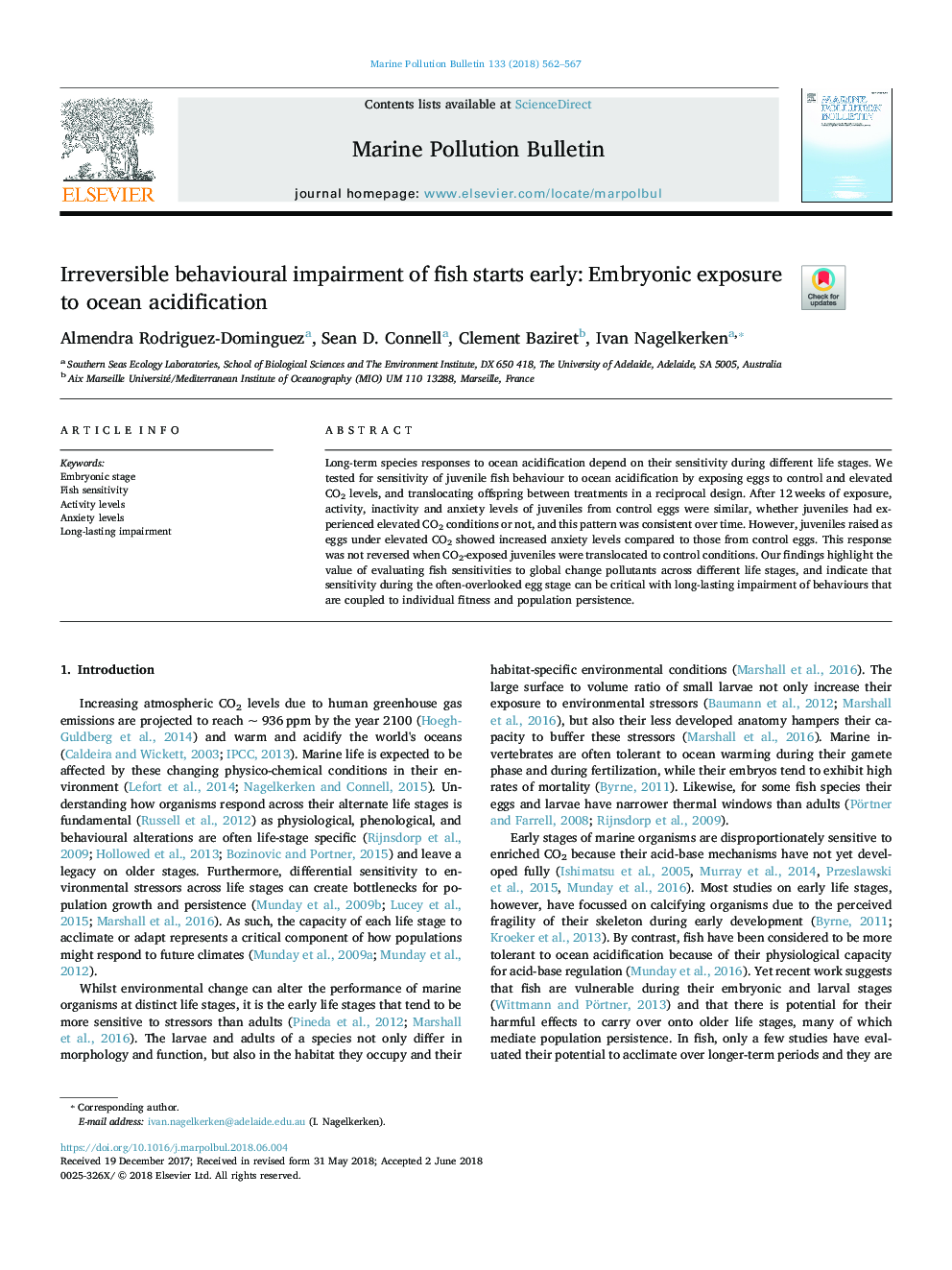| Article ID | Journal | Published Year | Pages | File Type |
|---|---|---|---|---|
| 8871106 | Marine Pollution Bulletin | 2018 | 6 Pages |
Abstract
Long-term species responses to ocean acidification depend on their sensitivity during different life stages. We tested for sensitivity of juvenile fish behaviour to ocean acidification by exposing eggs to control and elevated CO2 levels, and translocating offspring between treatments in a reciprocal design. After 12â¯weeks of exposure, activity, inactivity and anxiety levels of juveniles from control eggs were similar, whether juveniles had experienced elevated CO2 conditions or not, and this pattern was consistent over time. However, juveniles raised as eggs under elevated CO2 showed increased anxiety levels compared to those from control eggs. This response was not reversed when CO2-exposed juveniles were translocated to control conditions. Our findings highlight the value of evaluating fish sensitivities to global change pollutants across different life stages, and indicate that sensitivity during the often-overlooked egg stage can be critical with long-lasting impairment of behaviours that are coupled to individual fitness and population persistence.
Keywords
Related Topics
Physical Sciences and Engineering
Earth and Planetary Sciences
Oceanography
Authors
Almendra Rodriguez-Dominguez, Sean D. Connell, Clement Baziret, Ivan Nagelkerken,
